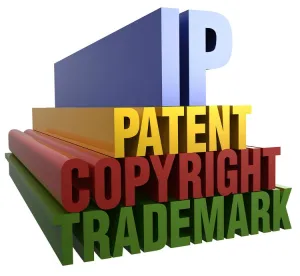The US Court of Appeals for the Fifth Circuit determined that a plaintiff could not use a state law claim for unfair competition to protect a valve design, because federal copyright law preempts such a claim. Ultraflo Corp. v. Pelican Tank Parts, Inc., Case No. 15-20084 (5th Cir., Jan. 11, 2017) (Costa, J.).
An Ultraflo employee designed a new butterfly valve for use in the transportation industry and recorded that new valve design in drawings. Pelican, an Ultraflo competitor, later hired the employee. Pelican also began selling a similar butterfly valve. Ultraflo believed that Pelican hired the former Ultraflo employee to access Ultraflo’s valve design, so Ultraflo filed a claim for state unfair competition by misappropriation.
The Fifth Circuit concluded that federal copyright law preempted Ultraflo’s state law claim. The Court reached its conclusion using a two-part test: (1) “whether the intellectual property at issue is within the subject matter of copyright,” and if so, (2) whether the state law claim protects rights that are “equivalent to any of the exclusive rights within the general scope of copyright.”
For the first part of the test, Ultraflo argued that it sought to protect its valve designs, and that copyright law does not protect valve designs. The Fifth Circuit agreed with Ultraflo that copyright law does not protect “useful articles” or “ideas,” and that the valve designs could be useful articles because they have “an intrinsic utilitarian function” that is not merely to convey information. The Court further agreed that the valve designs could qualify as ideas. The Court did not specify which category the valve designs fell into, but determined that since one of these categories applied, the valve designs were not entitled to copyright protection.
The Fifth Circuit explained, however, that even though copyright law did not protect the valve designs, those designs still satisfied the first part of the test by being “within the subject matter of copyright.” Copyright law determines what is entitled to protection as much as it determines what is not entitled to protection. In this case, the valve designs were not entitled to protection. As the Court explained, the valve designs were within the world of copyright law, but copyright law refused to protect them.
The Fifth Circuit also determined that the second part of the test was satisfied because Ultraflo’s claim for unfair competition was equivalent to a copyright claim. For Ultraflo, the elements of a copyright claim were materially the same as the elements of a claim for unfair competition by misappropriation. The Court rejected Ultraflo’s argument that the unfair competition claim was different because it sought to protect use of the valve design drawings to make the valves, whereas copyright law would not protect against that use. The Court explained that while copyright law could theoretically protect this use, Congress decided that it should not. This illustrates the idea-expression dichotomy. Patents protect ideas, and copyrights protect expressions. As the Court explained, Ultraflo’s claim would have been an end run around this distinction.




 />i
/>i
